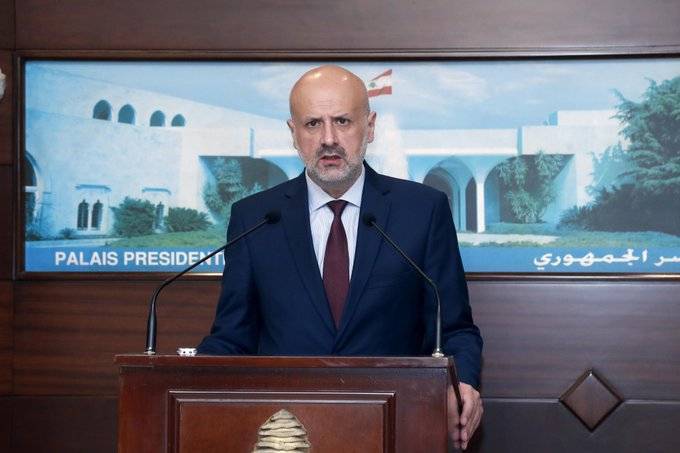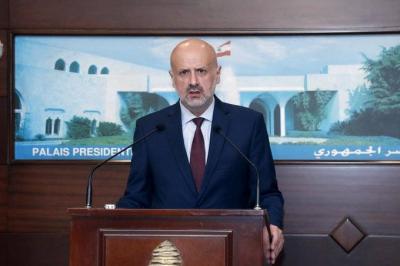The Lebanese Minister of Interior, Bassam Mawlawi, on Wednesday, sent a letter to the General Directorate of General Security requesting "the implementation of all necessary measures and actions to deport non-Lebanese members of the Bahraini Al-Wefaq association (opposition) outside the country," according to the Lebanese News Agency. On the same day, Mawlawi received a call from the Minister of Interior of the Kingdom of Bahrain, Lieutenant General Rashid bin Abdullah Al Khalifa, during which they discussed joint security files, particularly regarding the press conference held in Beirut last Saturday by the Al-Wefaq association. During the call, Mawlawi reaffirmed "his commitment to ensuring the security and stability of the Kingdom of Bahrain, and his absolute rejection of Lebanon being a platform for spreading hatred or hostility towards any Arab state, especially the Gulf Cooperation Council countries," as per the Lebanese agency.
In his letter to General Security, Mawlawi explained that the decision to deport was "due to the harm caused to Lebanon's relations with the sister Kingdom of Bahrain by the press conference held by the aforementioned association in Beirut on December 11, which negatively affected Lebanon's state interests." In the press conference held by the Bahraini opposition "Al-Wefaq National" association, they accused the regime in the kingdom of committing human rights violations, including security scrutiny of citizens with differing beliefs, preventing them from running for local elections and various institutions, arbitrary arrests of thousands, torture of detainees, and issuing politicized rulings.
The Bahraini Ministry of Foreign Affairs expressed "its regret over the hosting of a press conference in the Lebanese capital, Beirut, by hostile elements, for the purpose of disseminating and promoting false and malicious claims against the Kingdom of Bahrain." The Lebanese government condemned and rejected what was described as "aggression against the Kingdom of Bahrain" in a press conference held in the capital Beirut, which threatens to deepen the crisis again with Gulf countries.
Last Sunday, the Lebanese government released a statement condemning and rejecting what was described as "aggression against the Kingdom of Bahrain" during the press conference in Beirut. The statement indicated that Prime Minister Najib Mikati urgently referred the official protest letter from the Bahraini Ministry of Foreign Affairs to the relevant authorities, requesting immediate investigation into what occurred to prevent its recurrence and to take appropriate measures. Mikati emphasized his rejection of "using Lebanon as a platform to insult the Kingdom of Bahrain and to attack it, just as he rejects insult to neighboring Arab countries, especially those of the Gulf Cooperation Council."
This recent incident comes amid attempts to resolve a Saudi crisis with Lebanon following comments made by the resigned Lebanese Minister of Information, George Kordahi, regarding the war in Yemen, which led Riyadh to sever diplomatic relations with Beirut and halt all Lebanese imports. In solidarity with Riyadh, Bahrain and Kuwait took similar action, while the UAE withdrew its diplomats and decided to prevent its citizens from traveling to Lebanon. Kuwaiti authorities later decided to "tighten" visa issuance to Lebanese citizens.




